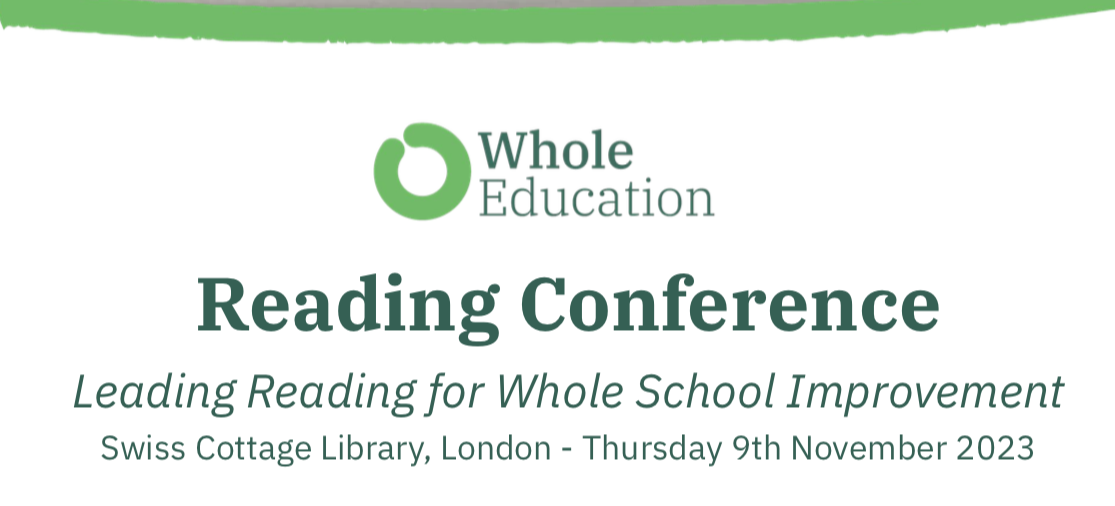
The Whole Education Reading Conference
The Whole Education reading conference took place on Thursday 9th November, 2023. It was a pleasure to attend, to meet old friends and new, and discuss the many complexities of ensuring every person can read well. Here is a summary of my personal experience of the day. What did you see and hear that I missed?
Keynote by Alex Quigley
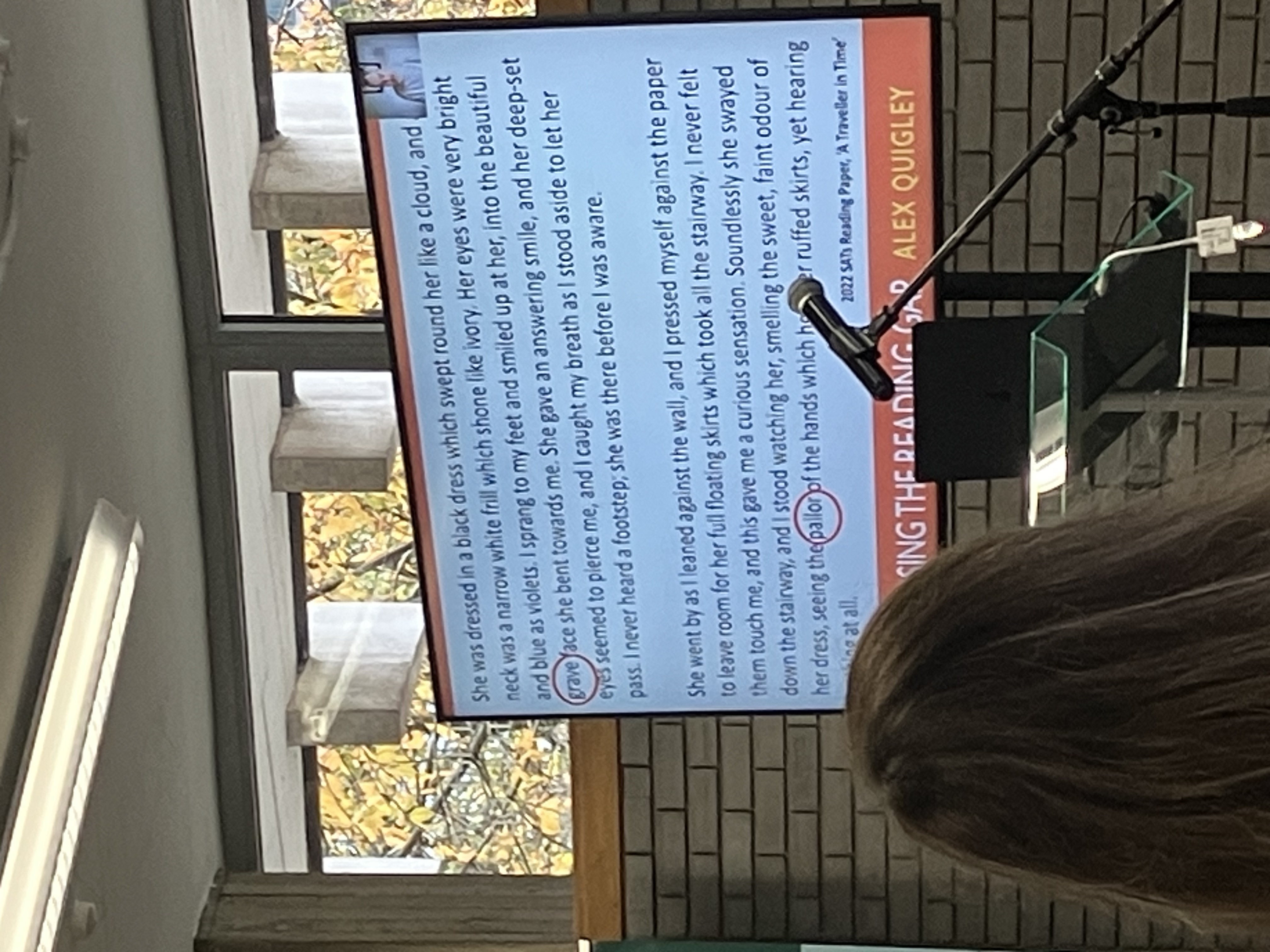
I arrived at the beginning of Alex's keynote. The session reminded me of the use of forcing empathy as a tool to galvanise support for reading initiatives. In Alex’s presentation he used the ‘redact a % of words and see how much meaning you miss’ trick. It’s a powerful thing particularly if you are addressing those that don’t live and breathe reading week in, week out. If some of the redacted words are quite subtle, or change the meaning significantly - for example ‘grave’ and 'pallor' in Alex's example - all the more eye-opening for the audience.
Catching up over drinks
Then a chance to catch up with people. A real pleasure to see Michelle Rabicano from Fairfax Multi-academy Trust and Meena Wood (a fellow francophone) whose session I mention later. The Whole Education team were helpful and did a fine job of hosting - thank you Douglas, Amanda, Bart, Shonogh and the whole team.
Beth Morrish's Session
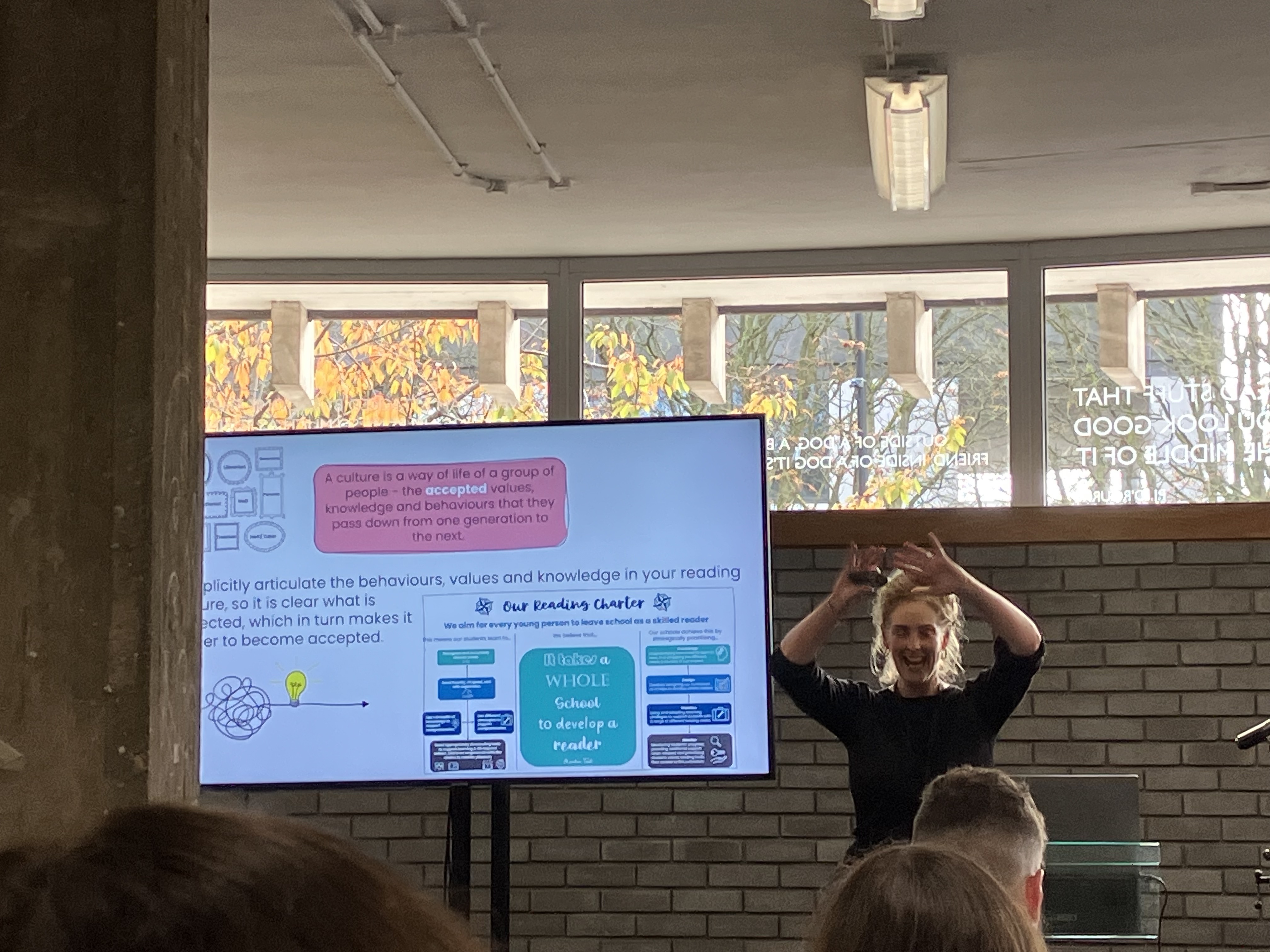
Then into Beth Morrish’s session on creating a reading culture across a trust. Beth is the Director of Literacy Strategies (secondary) and Professional Learning Lead at Meridian Trust. She has a background as an English teacher. Beth spoke with passion and energy on the great challenges that face those trying to instil a culture across multiple schools. This is, in my view, one of the great challenges that faces multi-academy trusts - especially if a trust has grown almost with monocultural schools and then takes on schools with different profiles.
With regards to reading culture specifically, Beth outlined how useful it is to be armed with the powerful (but rather depressing) facts: that 31% of children have a reading age of 12 at age 15; that those with a below chronological age reading age struggle massively to access maths, science... These compel any senior leader who might need further convincing as to the importance of reading to the success of their trust to sit up and listen (I am always surprised there are those that need convincing).
Beth also touched upon visibility, and has created a charter for her trust which is visible in every school. Our friends in the Nowhere Group would call this an ‘artefact’. There is power in this kind of constant presence - a reminder that triggers us to think about and consider something. Aiming to ensure every leader, every teacher, knows the charter is one component of ensuring its successful delivery. Beth also reminded us (and all the heads out there) that ultimate responsibility for a school’s reading culture lies with the head, as the DfE reading framework states: "Headteachers are ultimately responsible for building the reading culture in their school and ensuring that the teaching of reading is as effective as possible."
Meena Wood's Insights
After Beth’s session off to Meena Wood’s in a breakout room. Meena, an ex HMI and experienced head, underlined how we should be making our decisions based on what the child needs rather than what we think ofsted wants. She argues compellingly that these two things are not mutually exclusive. We can deliver to the child’s needs and to the accountability structures in place.
Meena described how, as a head, she created a dedicated unit within the school to support those who had either fallen behind with their reading or who were new to English. Alongside the benefits to their reading, these children also fostered positive relationships with teachers and staff. This resulted in a reduction in exclusions.
Lunch and Discussions
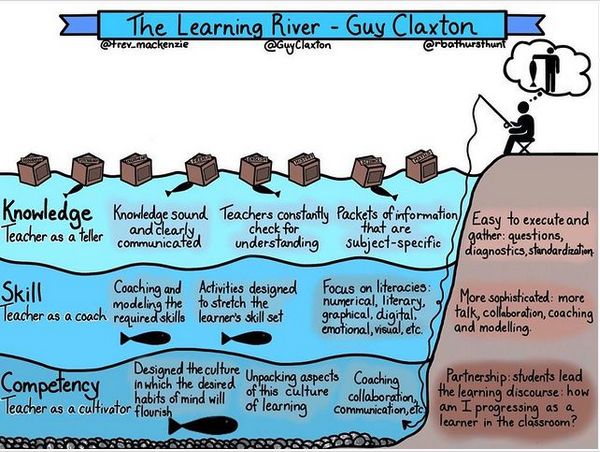
Then lunch! And something fishy. Speaking to Shonogh Pilgrim - great to chat - about her interests and the values of Whole Education. We discussed Guy Claxton’s analogy of the learning river, with the easy to measure little fish in the shallows, the medium sized fish in the middle depths and then the big fish, harder to catch, harder to measure, deeper down. The little fish being knowledge with the teacher as a teller; the middle fish being skills, the teacher now a coach; and then the big fish being competencies with teachers as cultivators - consciously designing cultures. I found this image by Trevor MacKenzie which appears to outline it nicely.
Later Shonogh was dashing off to Paris to a very interesting sounding conference with no agenda and no hierarchy - I hope to hear more about this later!
Afternoon Sessions
Then Darren Lamb and I caught up over a cup of tea / coffee. Rich conversations on how things are progressing at GL Education, and nice to see how the reading plans thing that helps schools see ‘what next’ for reading once NGRT has been created with some input from Beth Morrish and I imagine lots of other contributors. It overlaps very well with the ReadingWise offer.
Also on the GL front, really nice to say hi to Danielle Morgan who I haven’t seen for some time.
Rachael Symons on Reading at Transition
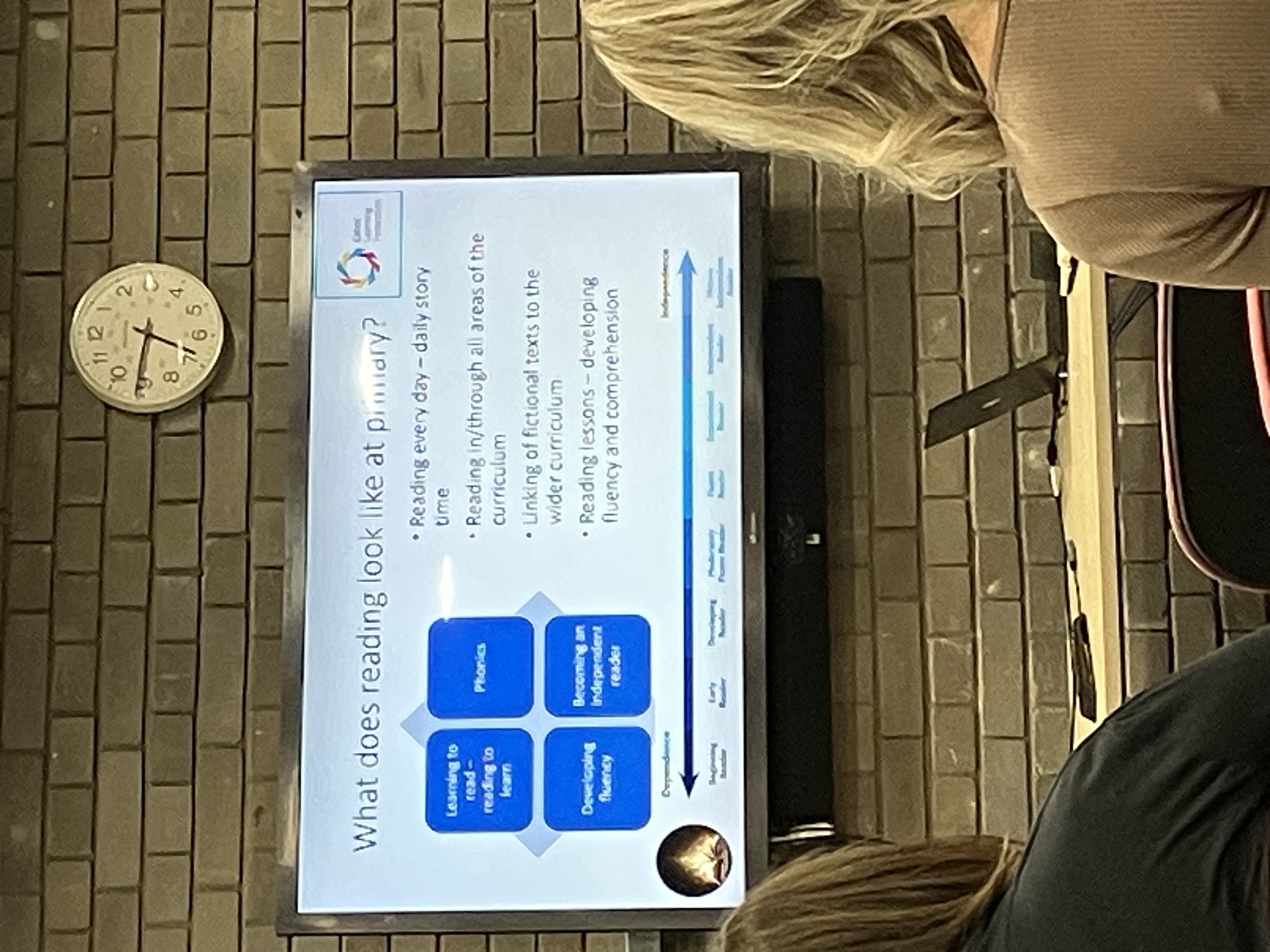
Finally, into Rachael Symons' session. Rachael is Reading Lead (3-19) and Primary English Lead at the Cabot Learning Federation. Her session focused on the transition between primary and secondary and how we handle reading as children move schools. I’ve led local authority sessions on transition and was heavily involved in a quite radical restructuring of year 7 as a teacher (creating a bridging year between primary and secondary) so have a particular interest in transition. I was keen to hear from Rachael.
Rachael leads literacy across primaries and secondaries at her trust and is full of both ideas and experience to support this complex moment in a child's school experience. Some key thoughts that emerged during the session was the reality that secondary teachers often have no idea which books have been read at primary and fairly often books are repeated - which can be boring or frustrating for the pupils. Also, if something like Macbeth is going to be covered again, how helpful it would be to know how it was taught in primary, which themes were explored. Build on what came before rather than pretend nothing came before.
Clearly one of the great challenges, even when primaries and secondaries are part of the same multi-academy trust, is that the year 6s disband and disperse to different secondary destinations. And the year 7s arrive from various settings and with diverse reading experiences. How can we transfer all of that knowledge and experience to the right teacher at the right time?
Journey Home
I left Swiss Cottage library with lots to digest and consider. Thanks to the Whole Education team for a stimulating day. Thanks for working on the big fish.









